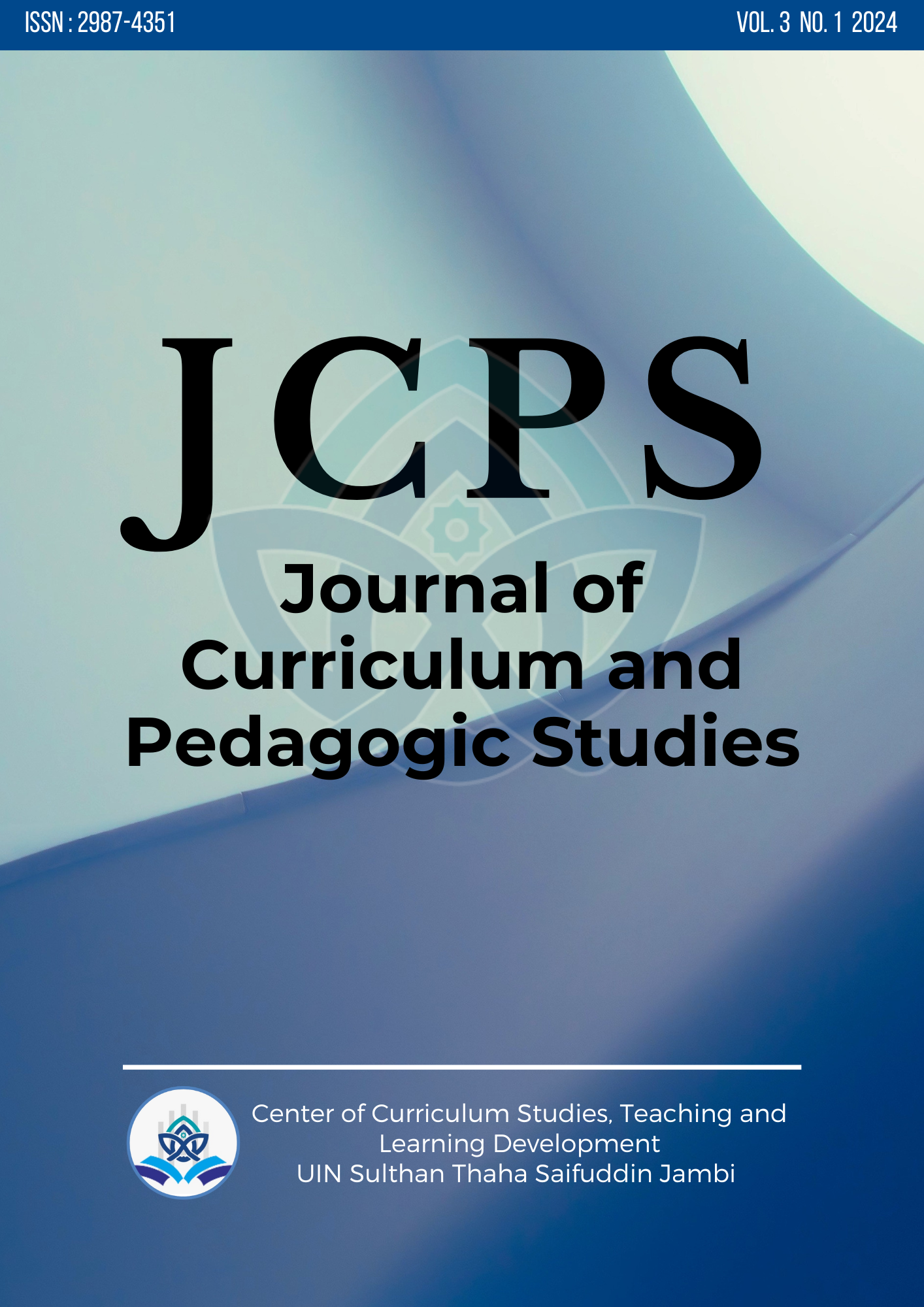Factors and Solutions for Decreasing Interest in Learning the Al-Qur'an among Post-Primary School Children in Pasar Senen Village, Kerinci
DOI:
https://doi.org/10.30631/y0q5mp82Keywords:
Interest in learning the Quran, elementary school studentsAbstract
The Qur'an contains complete and perfect teachings and laws which cover all aspects needed in human life, especially Muslims. The Al-Quran is the foundation for all knowledge because the Al-Quran explains aqeedah and strengthens a Muslim's faith. A child who studies and understands the Qur'an is expected to have noble morals and be filial to his parents. It is a shame that interest in reading, especially reading the Quran, among some aged children decreases after elementary school. Generally, children stop learning the Quran at TPA after they finish elementary school. They actually spend their time after coming home playing games, the internet, watching, without proper time control so that children are more engrossed in playing with their electronic devices than learning to read the Quran. This research is a type of qualitative research, which is classified as case research. The data obtained came from correspondents, namely children and teenagers as well as parents from the Pasar Senen Village community. This research data was collected using observation and interview techniques. Based on the research results, it is known that the decline in interest in learning the Al-Qurán for children after graduating from elementary school in Pasar Senen Village, Kerinci Regency is caused by several factors, namely: (a) children's factors (laziness, pride, the burden of schoolwork, feeling they can do it) (b) environmental factors (television programs or other electronic media, parental factors and learning factors. As a follow-up to these problems, parents and recitation teachers should provide motivation and instill awareness from an early age in children, that learning the Quran is an obligation that must be carried out by Muslims which is useful for the world and the hereafter. It is necessary to control and manage time for children.
References
Jaya, S. A. F. (2019). Al-qur'an dan hadis sebagai sumber hukum islam. Indo-Islamika, 9(2), 204-216.
Kementerian Agama RI. (2014). Al-Quran Dan Terjemahanya. Bandung: Cv Penerbit Diponegoro.
Lia, R. F. (2024). Dampak Tradisi Membaca Al-Qur"Ÿ An Surah Al-Waqi"Ÿ Ah Dan Al-Mulk Terhadap Santri Pon-Tren Ni"Ÿ Matullah Desa Kasikan Kab Kampar (Studi Living Qur"Ÿ An) (Doctoral Dissertation, Universitas Islam Negeri Sultan Syarif Kasim Riau).
Rozaq, A., & Alam, D. (2023). Penerapan Metode Qur-Any Dalam Peningkatan Bta Di Sd Negeri Peterongan 1. ILJ: Islamic Learning Journal, 1(3), 760-776.
Kbbi, K. B. B. I. (2016). Kamus Besar Bahasa Indonesia (KBBI). Kementerian Pendidikan Dan Budaya.
Majid, M. K. H. A. (2020). Pemikiran Tasawuf Syeikh Dr. Yusuf Al-Qaradhawi. PTS Publishing House Sdn. Bhd..
Downloads
Published
Issue
Section
License
Copyright (c) 2024 Atin Anggela Sari, Muhammad Alfian, Rasmita

This work is licensed under a Creative Commons Attribution-NonCommercial-ShareAlike 4.0 International License.
Journal of Curriculum and Pedagogic Studies (JCPS) is published under the terms of Creative Commons Attribution 4.0 International License / Attribution - Non Commercial-Share Alike 4.0 International (CC BY-NC-SA 4.0) This license permits anyone to copy and redistribute this material in any form or format, compose, modify and obtain these materials for any purpose, as long as they give credit to the author for the original copyright.











